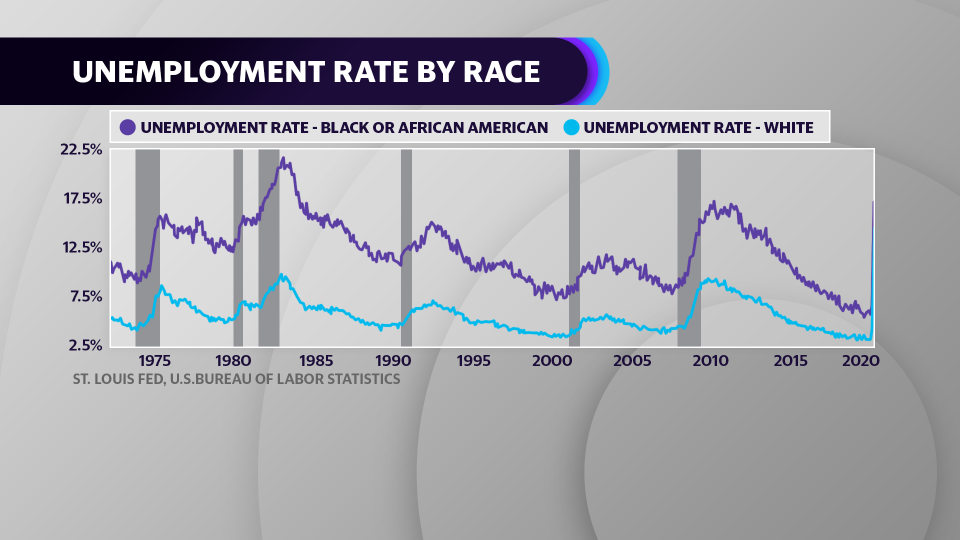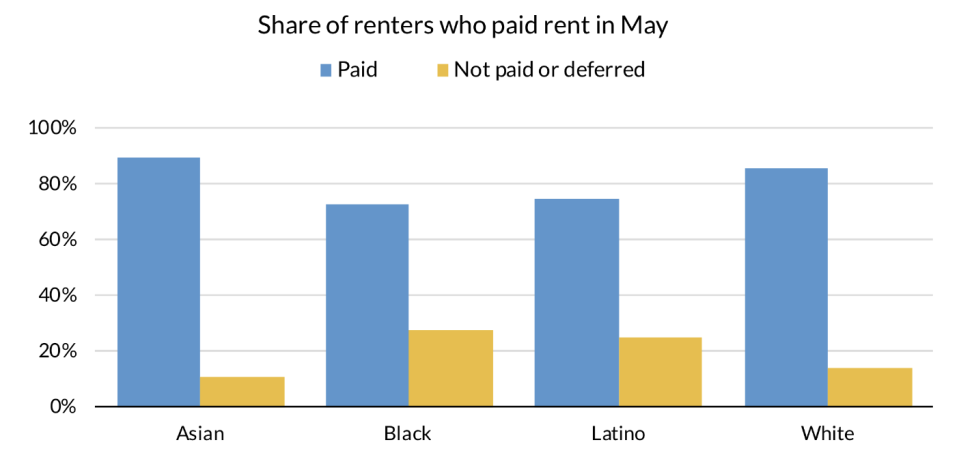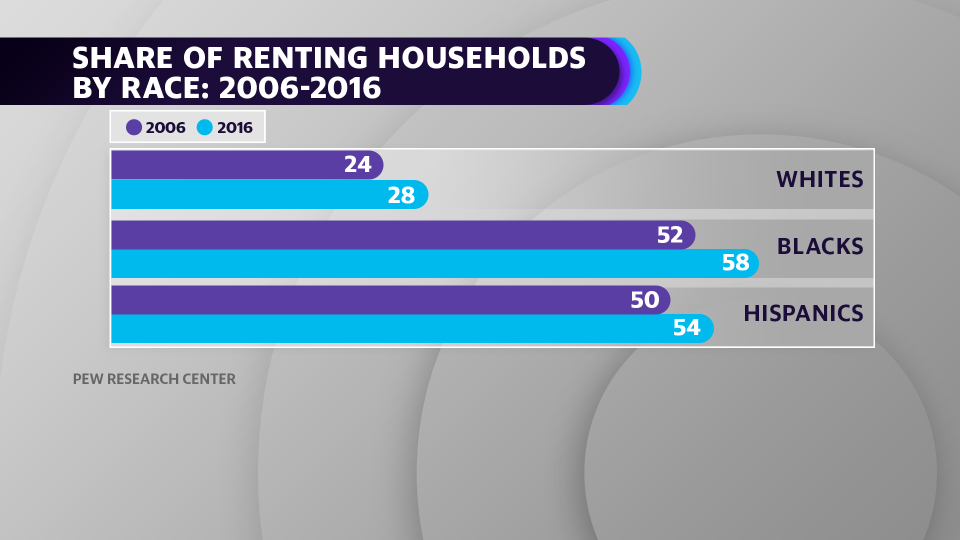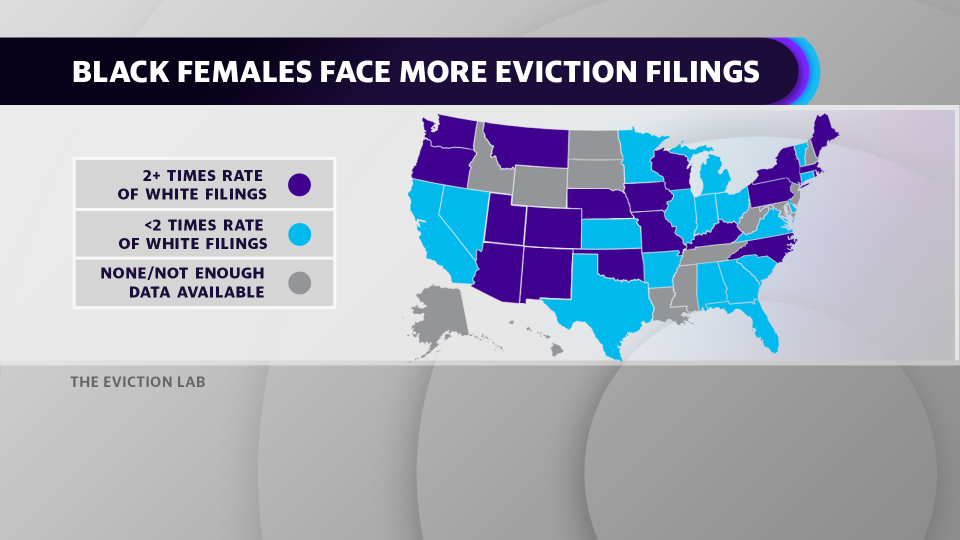COVID-19 crisis highlights housing inequality faced by black Americans
Job losses from the COVID-19 crisis risk exacerbating the housing inequality faced by black communities, as millions of Americans face missed rent payments and the increasing threat of eviction.
Although the crisis has struck nearly every corner of the United States, black communities are not only disproportionately affected by the virus itself but affected by the economic fallout as well. The socioeconomic divide has come into particular focus as nationwide protests continue following the death of George Floyd under the custody of Minneapolis police.
Although 59% of all adult black Americans were employed prior to the COVID-19 crisis, figures from the Bureau of Labor Statistics show that less than half (48.8%) currently have a job. For comparison, 60.5% of white adults currently have a job.

With rent payments piling up, concern is mounting that black Americans - with lower homeownership rates and higher challenges with evictions - could face a housing problem when those payments ultimately come due.
DC-based non-profit group Prosperity Now says COVID-19 is exposing a history of structural and institutional racism that have economically disadvantaged black Americans.
“Decades of long standing policies and systematic barriers have prevented African-Americans in particular, and other families of color, from being able to access quality health care, livable wage jobs, affordable housing, and equitable educational systems,” Prosperity Now vice president Lillian Singh told Yahoo Finance. “And a lot of those disparities are rooted in some of those systematic barriers.”
Rent and eviction, by the figures
With so many black workers having lost their jobs, rent payments may be in jeopardy.
Data from a recent Urban Institute survey shows that about a quarter of black renters did not pay or deferred rent in May, compared with only 14% of white renters.

The inability to pay rent is an even larger problem when considering that a majority of black families rent their living spaces.
Homeownership remains a massive divide between black families and white families; 2016 data from the Pew Research Center shows that 58% of black households rent compared to just 28% of white households.

The overarching concern: that black Americans may be forced out of their homes through eviction, despite the fact that their job loss was caused by a virus that was no fault of their own.
For the time being, many of those struggling to pay rent have been protected by eviction moratoria. But in some states that have begun re-opening, courts are also preparing to begin taking eviction cases again.
An American Civil Liberties Union analysis of data from Princeton University’s Eviction Lab shows that in 17 of 36 states for which data was available, black women faced at least two times the rate of eviction filings compared to white renters.

Income will likely remain a problem for black Americans as workers remain on the sidelines in anticipation of an economic recovery. More than 40 million Americans have lost their jobs since the COVID-19 crisis began, but the housing crisis in black communities raises questions over how long until joblessness turns into homelessness.
Brian Cheung is a reporter covering the Fed, economics, and banking for Yahoo Finance. You can follow him on Twitter @bcheungz.
Fed officials warn of long road ahead for U.S. economic recovery
Congress tells Fed to hurry up on cheap loan program for Main Street
Powell: Federal Reserve not out of ammunition 'by a long shot'
A glossary of the Federal Reserve's full arsenal of 'bazookas'
Read the latest financial and business news from Yahoo Finance
Follow Yahoo Finance on Twitter, Facebook, Instagram, Flipboard, SmartNews, LinkedIn, YouTube, and reddit.


